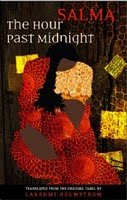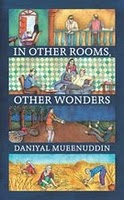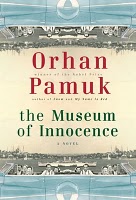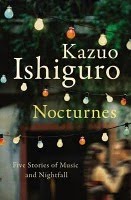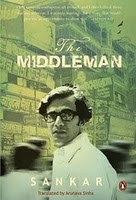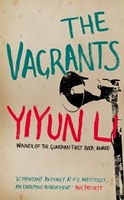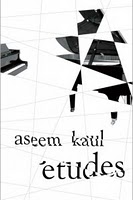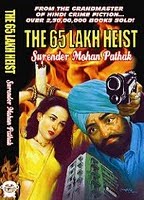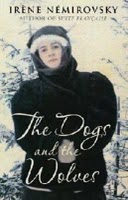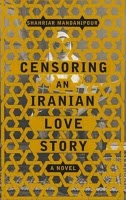Here are The Middle Stage’s favourite nonfiction books of 2009:
MG Vassan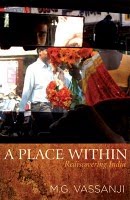 ji’s A Place Within (Penguin in India, Random House in Canada) was a brilliant meditation on history, religious identity, and Indianness by a novelist turning the questions of his fiction upon his own life and traditions. A member of an old, syncretistic faith, the Ismaili Khojas, Vassanji (who was born in Africa and later migrated to Canada) returns to the Gujarat of his ancestors and to the many Delhis to history to think about where he stands on some of the most vexing issues of our time. “It is always instructive,” writes Vassanji at one point on his travels, “to remind oneself of the obvious fact: The boundaries and names of many places are only recent in origin and often hide richer, more complex truths than one might imagine; the past then becomes inconvenient and slippery, far less easy to generalise.” And in a more personal mode, confessing to an inability to feel the belief of the true believer but also the skepticism of the agnostic: “At any dargah, a shrine of this kind, and even at a temple before a priest, I cannot but help but allow in me a solemn feeling, some respect and humility, for I stand alongside others in a symbolic place that it some manner reflects human existence and frailty, or smallness and exaltedness, and our striving for understanding.” To my mind this is the best Indian travel book of this decade.
ji’s A Place Within (Penguin in India, Random House in Canada) was a brilliant meditation on history, religious identity, and Indianness by a novelist turning the questions of his fiction upon his own life and traditions. A member of an old, syncretistic faith, the Ismaili Khojas, Vassanji (who was born in Africa and later migrated to Canada) returns to the Gujarat of his ancestors and to the many Delhis to history to think about where he stands on some of the most vexing issues of our time. “It is always instructive,” writes Vassanji at one point on his travels, “to remind oneself of the obvious fact: The boundaries and names of many places are only recent in origin and often hide richer, more complex truths than one might imagine; the past then becomes inconvenient and slippery, far less easy to generalise.” And in a more personal mode, confessing to an inability to feel the belief of the true believer but also the skepticism of the agnostic: “At any dargah, a shrine of this kind, and even at a temple before a priest, I cannot but help but allow in me a solemn feeling, some respect and humility, for I stand alongside others in a symbolic place that it some manner reflects human existence and frailty, or smallness and exaltedness, and our striving for understanding.” To my mind this is the best Indian travel book of this decade.
Amartya Sen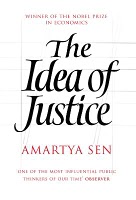 ’s The Idea of Justice (Penguin in India and the UK, Harvard University Press in America) was, at one level, a highly technical and specialised work grappling with key questions in the theorisation of justice, most notably the landmark work by John Rawls on the same subject. But Sen’s book also offered, to any intelligent lay reader interested in being led out of his comfort zone by a very astute tour guide, page upon page of brilliant thinking on both the plural nature of what we think of as “just” or “fair”, while simultaneously insisting that these ideas be rigorously tested in the practical domain of “redressable injustice” instead of only aspiring to a theoretical, almost mathematical, beauty. Sen contests many ideas that have acquired a general currency in the world today, arguing here against rational choice theory and its “remarkably miniaturised view of human rationality”, there against “the propensity [of theories] to account for all appearances from as few principles as possible”, and holding a candle for “the plurality of reasons that a theory of justice has to accommodate.” “Reasoning is central to the understanding of justice even in a world which contains much ‘unreason’,” Sen writes. “Indeed, it may be particularly important in such a world.” The use of that understated and yet somehow reproving phrase “may be”, which actually leaves the reader filling in a stronger word, offers a clue about what it is about Sen’s style that makes his work so persuasive.
’s The Idea of Justice (Penguin in India and the UK, Harvard University Press in America) was, at one level, a highly technical and specialised work grappling with key questions in the theorisation of justice, most notably the landmark work by John Rawls on the same subject. But Sen’s book also offered, to any intelligent lay reader interested in being led out of his comfort zone by a very astute tour guide, page upon page of brilliant thinking on both the plural nature of what we think of as “just” or “fair”, while simultaneously insisting that these ideas be rigorously tested in the practical domain of “redressable injustice” instead of only aspiring to a theoretical, almost mathematical, beauty. Sen contests many ideas that have acquired a general currency in the world today, arguing here against rational choice theory and its “remarkably miniaturised view of human rationality”, there against “the propensity [of theories] to account for all appearances from as few principles as possible”, and holding a candle for “the plurality of reasons that a theory of justice has to accommodate.” “Reasoning is central to the understanding of justice even in a world which contains much ‘unreason’,” Sen writes. “Indeed, it may be particularly important in such a world.” The use of that understated and yet somehow reproving phrase “may be”, which actually leaves the reader filling in a stronger word, offers a clue about what it is about Sen’s style that makes his work so persuasive.
Ho oman Majd’s The Ayatollah Begs To Differ (Doubleday in America, Penguin in the UK) richly deserved the accolades it won for being one of the best books available on the complexities of modern Iran. One of the very charming features of Majd’s book is that we are brought up close not only with Iran, but also with Majd himself: his love of life’s little pleasures, his sunny nature and love of jokes and absurdities, and his alertness to very subtle nuances of social conduct. I read his work as a meditation not just on how to live when one goes to in Iran, but on how to live. Also perhaps the best book title of the year.
oman Majd’s The Ayatollah Begs To Differ (Doubleday in America, Penguin in the UK) richly deserved the accolades it won for being one of the best books available on the complexities of modern Iran. One of the very charming features of Majd’s book is that we are brought up close not only with Iran, but also with Majd himself: his love of life’s little pleasures, his sunny nature and love of jokes and absurdities, and his alertness to very subtle nuances of social conduct. I read his work as a meditation not just on how to live when one goes to in Iran, but on how to live. Also perhaps the best book title of the year.
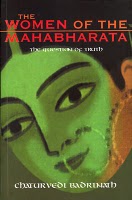 Chaturvedi Badrinath’s The Women of the Mahabharata (Orient Longman) was simultaneously a brilliant philosophical inquiry and a work of subtle and polished literary criticism. Badrinath’s book focuses on twelve significant women in the Mahabharata and the place of their stances and actions within the larger web of meaning embedded in the epic. “In being a most systematic philosophic inquiry into the human condition,” writes Badrinath in one of his moments of flight around the idea of story,”the Mahabharata does not see the meaning of a story in the way it ends. The particular end of a story is not the whole of its meaning.” Both epigrammatic (”Irony is the laughter of truth”) and expansive (it quotes at great length from the text), this is a book which deserves a world and not just an Indian audience. Badrinath is also the author of The Meaning of the Mahabharata.
Chaturvedi Badrinath’s The Women of the Mahabharata (Orient Longman) was simultaneously a brilliant philosophical inquiry and a work of subtle and polished literary criticism. Badrinath’s book focuses on twelve significant women in the Mahabharata and the place of their stances and actions within the larger web of meaning embedded in the epic. “In being a most systematic philosophic inquiry into the human condition,” writes Badrinath in one of his moments of flight around the idea of story,”the Mahabharata does not see the meaning of a story in the way it ends. The particular end of a story is not the whole of its meaning.” Both epigrammatic (”Irony is the laughter of truth”) and expansive (it quotes at great length from the text), this is a book which deserves a world and not just an Indian audience. Badrinath is also the author of The Meaning of the Mahabharata.
Another book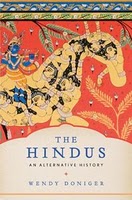 which offered a brilliant interpretation of key cruxes in the Mahabharata, as well as other questions raised by the Ramayana and that of many other texts in the library of Hinduism, was Wendy Doniger’s magnum opus The Hindus: An Alternative History (Penguin). Doniger’s title gestures at an ambition to write a more comprehensive and inclusive history of Hinduism than the standard narrative allows, concentrating in particular on of women and lower-castes and their modifications of received traditions, as well as the vast internal diversity of Hindu thought itself on any of the big questions. Like Sen, Doniger is happy to accept the plurality of approaches towards the resolution of complicated academic debates; like Majd, she likes a good joke and is not shackled by ideas of scholarly decorum. I was particularly amused by her assertion that Emperor Ashoka’s equivocations and hedging on the subject of non-violence ““is the expression of a man who finds himself between a rock edict and a hard place”.
which offered a brilliant interpretation of key cruxes in the Mahabharata, as well as other questions raised by the Ramayana and that of many other texts in the library of Hinduism, was Wendy Doniger’s magnum opus The Hindus: An Alternative History (Penguin). Doniger’s title gestures at an ambition to write a more comprehensive and inclusive history of Hinduism than the standard narrative allows, concentrating in particular on of women and lower-castes and their modifications of received traditions, as well as the vast internal diversity of Hindu thought itself on any of the big questions. Like Sen, Doniger is happy to accept the plurality of approaches towards the resolution of complicated academic debates; like Majd, she likes a good joke and is not shackled by ideas of scholarly decorum. I was particularly amused by her assertion that Emperor Ashoka’s equivocations and hedging on the subject of non-violence ““is the expression of a man who finds himself between a rock edict and a hard place”.
Jonathan Bate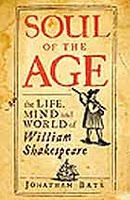 ’s Soul of the Age (Penguin in the UK, Random House in America), a biography of Shakespeare by one of the greatest living Shakespeareans, beautifully organised its copious material around Shakespeare’s own famous conceit of the Seven Ages of Man. Bate, who is also the author of the excellent book The Genius of Shakespeare, shows us Will the boy, youth, theatreperson, householder, and businessman against the background of a richly realised world of sixteenth-century reading, rhetoric, politics, statecraft, and even botany. Some of Bate’s readings of individual plays, particularly of King Lear and its vision of human love and folly, showed how literary criticism is not just a response to literature and a meeting of two minds over one text; it is itself a form of literature, and can tint older works with new colours.
’s Soul of the Age (Penguin in the UK, Random House in America), a biography of Shakespeare by one of the greatest living Shakespeareans, beautifully organised its copious material around Shakespeare’s own famous conceit of the Seven Ages of Man. Bate, who is also the author of the excellent book The Genius of Shakespeare, shows us Will the boy, youth, theatreperson, householder, and businessman against the background of a richly realised world of sixteenth-century reading, rhetoric, politics, statecraft, and even botany. Some of Bate’s readings of individual plays, particularly of King Lear and its vision of human love and folly, showed how literary criticism is not just a response to literature and a meeting of two minds over one text; it is itself a form of literature, and can tint older works with new colours.
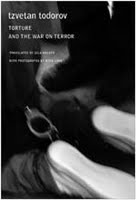 Tzvetan Todorov’s Torture and the War on Terror (Seagull Books) was a short, eloquent and trenchant book about the vitiation of both inteliigence and dignity by the use of torture to grill suspects, whether in America’s war on terror in particular or war in general. Todorov refutes various arguments made in support of torture, such the widely circulated “ticking bomb scenario”, and suggests that the long-term damage of torture that is sanctioned by both states and societies – that is, you and me – are far greater than its apparent payoff. “Institutionalized torture is even worse than individual torture,” writes Todorov, “because it subverts the very foundation of the idea of justice and law. If the state itself becomes the torturer, how can we believe in the civil order that it claims to bring or to sanction?”
Tzvetan Todorov’s Torture and the War on Terror (Seagull Books) was a short, eloquent and trenchant book about the vitiation of both inteliigence and dignity by the use of torture to grill suspects, whether in America’s war on terror in particular or war in general. Todorov refutes various arguments made in support of torture, such the widely circulated “ticking bomb scenario”, and suggests that the long-term damage of torture that is sanctioned by both states and societies – that is, you and me – are far greater than its apparent payoff. “Institutionalized torture is even worse than individual torture,” writes Todorov, “because it subverts the very foundation of the idea of justice and law. If the state itself becomes the torturer, how can we believe in the civil order that it claims to bring or to sanction?”
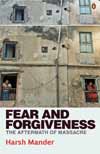 Harsh Mander’s Fear and Forgiveness: The Aftermath of Massacre (Penguin India) was a compassionate and morally lucid account of what happens to a society – in this case Gujarat after 2002 – for weeks, months, and years in the wake of a genocide. The defining feature of the Gujarat violence to this day, Mander argues, “is the determined absence of remorse in both the state and many segments of the people.” As much as the trials of those who orchestrated large-scale murder and carnage in Gujarat in 2002 are about punishing the guilty, they are also, argues Mander, a way “for the victim to reestablish her or his equal citizenship and rights before the law in a secular democracy.” Mander describes the work done by himself and his volunteers on behalf of those deprived of their livelihoods, families and dignity in the carnage of 2002, but he always sees them as human beings first and victims second, even if this means that they choose not to fight the long fight in the courts.
Harsh Mander’s Fear and Forgiveness: The Aftermath of Massacre (Penguin India) was a compassionate and morally lucid account of what happens to a society – in this case Gujarat after 2002 – for weeks, months, and years in the wake of a genocide. The defining feature of the Gujarat violence to this day, Mander argues, “is the determined absence of remorse in both the state and many segments of the people.” As much as the trials of those who orchestrated large-scale murder and carnage in Gujarat in 2002 are about punishing the guilty, they are also, argues Mander, a way “for the victim to reestablish her or his equal citizenship and rights before the law in a secular democracy.” Mander describes the work done by himself and his volunteers on behalf of those deprived of their livelihoods, families and dignity in the carnage of 2002, but he always sees them as human beings first and victims second, even if this means that they choose not to fight the long fight in the courts.
Alain de Botton’s  The Pleasures and Sorrows of Work (Penguin in the UK, Pantheon in America) was a beautifully composed meditation on the idea of work as imagined and lived out by 21st-century human beings in a range of situations, from fishing in the deeps of Maldives to the backroom operations of supermarkets. De Botton is less a reporter, more a writer; he is no Barbara Ehrenreich, infiltrating the sites that he wants to investigate. One of the criticisms offered of his book was that he is rarely seen getting his hands dirty, and approaches the work of labour from a certain remove. But it seemed to me better that the writer made this clear, and mined his own mind and intuitions for the significance of what he was seeing, instead of committing himself to a more detached and perhaps quantitative engagement with the situations he was entering. One of the book’s many pleasures was the distinctive filamented cadences of de Botton’s language.
The Pleasures and Sorrows of Work (Penguin in the UK, Pantheon in America) was a beautifully composed meditation on the idea of work as imagined and lived out by 21st-century human beings in a range of situations, from fishing in the deeps of Maldives to the backroom operations of supermarkets. De Botton is less a reporter, more a writer; he is no Barbara Ehrenreich, infiltrating the sites that he wants to investigate. One of the criticisms offered of his book was that he is rarely seen getting his hands dirty, and approaches the work of labour from a certain remove. But it seemed to me better that the writer made this clear, and mined his own mind and intuitions for the significance of what he was seeing, instead of committing himself to a more detached and perhaps quantitative engagement with the situations he was entering. One of the book’s many pleasures was the distinctive filamented cadences of de Botton’s language.
Many excellent 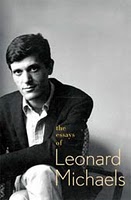 meditations on both life and literature were brought together in The Essays of Leonard Michaels (Farrar Straus Giroux). One of the joys of reading Michaels is his emphasis on how writers are as interesting as the thoughts or ideas for which we know them, and that to understand a writer’s ideas we must first and foremost read his sentences, not just seek out his arguments. “Because the sentences from Hegel and Blake also have a form in which their intuitions, and preserved against rational analysis, it is not easy to explain them without letting their pleasure and energy bleed away,” he writes at one point. Elsewhere, in a beautiful meditation on the human face, he writes, “A face is the thing we most consciously bear or carry into public view, while it remains invisible to ourselves; and it is also the thing we contemplate endlessly in others, in the tremendous variety and subtlety of their moods, desires, and meanings….A face is revealing and at the same time a disguise….Whatever we say, our face says it first, or differently, or withholds part of the meaning. It betrays as much as its expresses.” The cover of this book features, appropriately enough, a striking photograph of Michaels.
meditations on both life and literature were brought together in The Essays of Leonard Michaels (Farrar Straus Giroux). One of the joys of reading Michaels is his emphasis on how writers are as interesting as the thoughts or ideas for which we know them, and that to understand a writer’s ideas we must first and foremost read his sentences, not just seek out his arguments. “Because the sentences from Hegel and Blake also have a form in which their intuitions, and preserved against rational analysis, it is not easy to explain them without letting their pleasure and energy bleed away,” he writes at one point. Elsewhere, in a beautiful meditation on the human face, he writes, “A face is the thing we most consciously bear or carry into public view, while it remains invisible to ourselves; and it is also the thing we contemplate endlessly in others, in the tremendous variety and subtlety of their moods, desires, and meanings….A face is revealing and at the same time a disguise….Whatever we say, our face says it first, or differently, or withholds part of the meaning. It betrays as much as its expresses.” The cover of this book features, appropriately enough, a striking photograph of Michaels.
Dearest Fa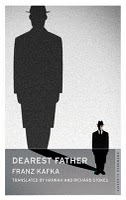 ther (Oneworld Classics), a new translation by Richard and Hannah Stokes of a long letter written well into middle age by Franz Kafka to his dominating father Hermann, but never sent, showed us the contorted emotional world and murky artistic wellsprings of one of the greatest of modern writers as perhaps no biography or work of interpretation could. Kafka casts himself and his father as permanently warring but poorly matched antagonists, and his life as one long series of failures presided over by the older man. “I was no real match for you, you soon disposed of me; all that then remained was escape, bitterness, grief, inner struggle,” writes Franz. The sense of human powerlessness which is everywhere in Kafka’s fiction is evoked here as a grown man’s inability to see himself in any other way than as a despairing and unworthy child.
ther (Oneworld Classics), a new translation by Richard and Hannah Stokes of a long letter written well into middle age by Franz Kafka to his dominating father Hermann, but never sent, showed us the contorted emotional world and murky artistic wellsprings of one of the greatest of modern writers as perhaps no biography or work of interpretation could. Kafka casts himself and his father as permanently warring but poorly matched antagonists, and his life as one long series of failures presided over by the older man. “I was no real match for you, you soon disposed of me; all that then remained was escape, bitterness, grief, inner struggle,” writes Franz. The sense of human powerlessness which is everywhere in Kafka’s fiction is evoked here as a grown man’s inability to see himself in any other way than as a despairing and unworthy child.

